- Home
- Franklin W. Dixon
The Hidden Harbor Mystery Page 3
The Hidden Harbor Mystery Read online
Page 3
In this spot the thick vegetation grew right to the water’s edge. The Hardys plunged through the tangle until they felt the tepid water lap over their sneakers.
Their flashlight beams picked out crushed leaves and stalks where something large must have dragged itself ashore. But the trail ended a few feet from the water, in the thick growth. No further signs of the strange creature could be found.
“Maybe the monster slipped back into the pond,” Joe whispered apprehensively.
Suddenly Frank snapped off his flashlight and signaled his brother to do the same. At the edge of the gloomy pond, where the big swamp stretched toward the main road, a light was moving!
In a moment the Hardys were fighting their way through the dense undergrowth toward the figure. The moon was their only light, as they crept forward silently and swiftly. Soon a glow about fifty yards ahead of them lit up a grove of weird, moss-covered cypress trees. Underneath one of them, Frank and Joe discerned a tall figure in a long coat and floppy hat, his back to the boys.
Scarcely breathing, Frank and Joe slipped forward. In one hand the strange figure carried a small lantern. He frequently stooped to examine the ground. Once he crouched for a long time looking at something. The boys crept closer.
Suddenly the figure stood to his full height, as if listening keenly. Then, like a shot, he went off at a swift, long-legged run through the swamp.
“He’s heading for Rand‘s!” Frank whispered tensely, as the boys raced forward.
A protruding root suddenly sent Joe sprawling. Frank, behind, piled on top of him. Ahead, the figure with the swinging lantern gained ground. Leaping to their feet, the boys ran on, out of the swamp and up a slight hill toward the Rand estate. Presently, a high, solid hedge, silhouetted against the moonlit sky, came into view. At the same moment, the pursued man and his lantern disappeared into the dense shrubbery. Panting, the boys pounded up and plunged through it.
“Whoa!” cried Frank.
Beyond the hedge the ground dropped off sharply about seven feet. Below them lay a broad meadow. The man with the lantern was not in sight.
“Given us the slip,” Joe admitted.
Still breathing hard from the chase, the brothers walked directly toward the ocean. They found Chet at camp, lying on his stomach, munching an apple and reading a mystery story.
“Hi! Good night! Where have you been? Swimming in mud?” he needled, looking at their soggy, spattered clothing.
Joe grinned. “Chet, you must go up to the pond and see the monster!”
“The—what? No, thanks. But you’re kidding?”
“We mean it,” Frank replied, and he told the story, exaggerating it a bit to tease Chet. “You’re really missing all the excitement, Chet.”
“It’s okay with me. I’ll pull a fish out of the water—that’ll be monster enough for me.”
He arose, lighted the camp stove, and prepared mugs of steaming cocoa. Suddenly he said, “Wait a minute, fellows! Did you really see some kind of prehistoric ... dinosaur ... in that pond?”
“Well, not quite that big.” Frank had to laugh. “But the thing was as big as a man, at least.”
Chet looked around fearfully. “Do you think the monster might be connected with the mystery?”
“Search me,” Joe shrugged. “I wonder if that prowler out there tonight saw the creature.”
“Funny business.” Chet shook his head.
The campers finished their cocoa, then crawled into their bags and slept soundly. After breakfast next morning, the boys attended Sunday church service. They had lunch in town, then Frank said, “Let’s drive to Professor Rand’s house. If the professor isn’t there, we’ll go to the police. I don’t care what Blackstone says. We saw Rand take a nasty crack on the head. He may be seriously injured, or worse!”
When the three boys reached the run-down plantation house, they found it as empty as it had appeared the day before. They headed at full speed for Larchmont and went to Bart Worth’s home.
“You have news?” he asked expectantly.
Joe related the fierce quarrel the Hardys had witnessed in the Blackstone mansion two nights before. “Bart,” the boy went on, “has anyone mentioned having seen the professor lately?”
The young editor shook his head and grabbed his hat in one movement. “It’s a case for the police now,” he said, rising. But Frank restrained him.
“You’d better not become involved,” the boy advised. “After all, Joe and I were the witnesses. The police know you have a feud with Blackstone, and might not believe you. Also, we don’t want Blackstone to know we’re working for you.”
Bart agreed, and the boys left to make a report to the authorities.
Larchmont’s police station was a trim building of whitewashed brick, just across the square from the courthouse. A desk sergeant led the three into the office of Police Chief Gerald. Frank gave an account of the attack to the middle-aged law officer, who listened intently.
“Hmm ... by the time you entered the room, the vase had been mended,” the chief repeated. He stared ahead in deep thought. “What do you young fellows want me to do?” he asked.
“We think you should procure a warrant and search Blackstone’s house,” Frank urged promptly.
The chief smiled, picked up the telephone, and dialed a number.
“Hello?” he began politely. “Mr. Blackstone, this is Chief Gerald. Some visitors to our town have been telling me about a fight at your place two nights ago. One of the men-Professor Rand, by the sound of it—is supposedly missing. I’m afraid I’ll be obliged to get a warrant and make a search of your place.”
The three boys watched the officer’s face eagerly for some hint of Blackstone’s reaction. But they could tell nothing until the chief hung up. He looked at the boys quizzically and reported, “Mr. Blackstone says I don’t need a warrant. Told me to come on out there right now, and bring the visitors with me—that he hasn’t anything to hide.”
Chief Gerald summoned one of his patrolmen and led Frank, Joe, and Chet to a police car outside. Within twenty minutes they were parked in front of the large brick house. Samuel Blackstone stood waiting on the porch.
“This way, Chief,” he greeted the law officer, not waiting for an introduction to Chet Morton. “I want you to see everything.” The heavy-set man did not address the boys directly.
Mr. Blackstone conducted them to every part of his house. Frank and Joe kept a sharp watch, but saw nothing out of the ordinary. Finally, he led the group to the front door.
“You’ve seen the house,” said Blackstone. “Now read this.”
He produced a note written on Professor Rand’s stationery. The chief read it aloud:
“ ‘Dear Samuel, if you want me I’m at the Storm Island Lighthouse for a few days, doing some research. Ruel.’ ”
“My cousin is an archaeologist,” Blackstone explained. “His specialty is American Indian civilization. He’s always looking for old relics.”
“Well, this note sounds friendly enough,” commented Gerald as he handed it back.
“And are you satisfied?” The big man suddenly turned hard, antagonistic eyes on the Hardys.
“Not yet,” Joe spoke up without flinching. “We’d like to talk to your man, Grover. He saw that fight, too.”
“Grover’s older brother in Chicago is very ill,” Blackstone returned promptly. “He begged me to let him go to see him, and I did. It’s his first vacation in many years, and I won’t have him brought back for any such nonsensical reason.”
Blackstone accompanied the boys and the police officer when they returned to the waiting patrol car. “Chief Gerald,” he said warningly, “these boys have already trespassed on my land. Now they practically accuse me of something underhanded. If they ever set foot on my property again, or annoy me in any way, I’m going to ask you to arrest them!”
Turning quickly, he strode back to the house. Then the police car drove out of the long private road and back toward Larchmont.
“Well, boys,” the chief told them, “you’ve made a powerful enemy.”
“That doesn’t bother us,” Frank said. “Not if we find out the truth.”
That afternoon, back at their camp, the three young detectives held a conference. “We must find out why that pond is so important,” Frank insisted. “I’m for going back there tonight with our skin-diving gear, and tracking down the monster!”
That evening, as a big, round yellow moon rose above the trees of the dark swamp, the three boys stood at the pond’s edge. Frank and Joe, in bathing trunks, held diving face masks and flippers. Each had an aqualung strapped to his back. Chet stood by with a Thermos of hot broth.
“Well, here goes,” said Frank quietly. He put on his mask, adjusted his breathing hose, and slipped into the black water.
The next instant Chet and Joe were startled by a sudden crash of brush on the far side of the pond. As the boys stared almost hypnotized, a huge shape making remarkably little noise wrig gled off the bank into the water.
Seconds later, a saw-tooth fin broke the smooth moonlit surface of the pond and headed straight for the spot where Frank had gone underl
CHAPTER V
Marooned!
“THE monster! It’s after Frank!” cried Joe as the creature’s long serrate fin disappeared beneath the pond’s surface.
Quickly adjusting his own face mask and breathing tube, Joe plunged into the dark, menacing water. He kicked powerfully with his flippers, and shot down through the water. The bottom of the pond was absolutely black, but just enough of the moon’s pale light filtered down through the murk for him to distinguish violent thrashing motions dead ahead.
Instantly Joe encircled his brother’s shoulder with one arm. At the same time, he came to grips with something cold and slippery that was tugging Frank’s limp body deeper into the pond.
Fearlessly Joe attacked. But the creature possessed great power and gradually wrestled him down into the thick ooze at the bottom.
Joe gritted his teeth but never let go his hold on Frank. In a moment he wrenched himself loose from the monster. It closed in again. Desperately, Joe shook off his flippers and kicked with all his might against the cold, slimy body of the attacker.
This propulsion speeded the boys upward through the water to the surface. With a frantic one-arm stroke, Joe swam to the shore, still grasping his unconscious brother. Chet waded out and helped pull them in. A few minutes later Frank was sitting up and shaking his head groggily.
“Drink this,” ordered Chet, handing over the Thermos of beef broth. “What happened?”
“That thing got me from behind,” Frank reported, after a gulp of the hot broth. “My air line was nicked. Started to get a trickle of water. I held my breath till I blacked out!”
Joe, meanwhile, had removed his own equipment and was examining his brother’s air hose. “A jagged cut,” he told them. “Could be from several things—knife, claws, shears, teeth.”
“Teeth!” echoed Chet. “You mean—an alligator?”
Joe shook his head. “The monster’s head we saw was no alligator’s.”
Chet shuddered. “That’s enough sleuthing for one night,” he declared firmly. “Let’s go!”
The Hardys agreed, but they were more determined than ever to discover the pond’s secret.
In spite of his close call, Frank awakened fit and alert the next morning. “Let’s hire a boat and go out to Storm Island today,” he proposed at break fast. “I want to see if Rand is really there. I don’t trust Blackstone’s ‘friendly note.’ Anybody might have written it.”
After cleaning up camp, the three friends headed for town in the convertible. As they drove through to the far side of Larchmont, they saw masts, cables, and booms of fishing boats, with sea gulls flapping their wings among them.
“Larchmont docks,” Frank announced.
They had no trouble in hiring a boat for the day. While Frank was settling a deal with the owner of a motorboat, Chet and Joe bought some bread, cheese, and cold cuts at a nearby grocery. Just as the boys were ready to shove off, a tall, familiar, pale-faced man approached them.
“Where to, fellows?” Henry Cutter asked. His tone was friendly, but he watched them sharply. Another man, whom the boys assumed was Cutter’s partner, Mr. Stewart, joined him.
“Oh, it’s such a swell day,” replied Frank, casually squinting overhead, “we thought we’d take a sightseeing cruise.”
“Hmm. Well, have fun. Come along, Stewart.” The two men walked off.
“They’re a nosy pair,” Chet complained, settling back in the boat, an old wooden craft with deep sides and a high windshield. Eagerly Joe took the wheel, which resembled a ship’s helm. Frank and Chet sat on the wooden box housing the engine. Soon the craft was moving toward the mouth of the inlet into the Atlantic.
“Storm Island is a little south of here,” explained Frank, opening a chart. “It’s nothing but a pile of rocks in the sea, according to Worth. The light hasn’t been used in years, since there’s no more shipping from Larchmont.”
They left the harbor and headed the boat south on the blue-green sea. The white dunes of the beach were far over to their right. The horizon was a line where the powder-blue sky met the darker hue of the ocean. Then a pile of jumbled rocks came into view.
“Must be Storm Island,” Frank said briefly.
As they came closer, they saw that the islet was indeed nothing but a mass of rock, about a hundred yards long. From its center rose a conical wooden tower with a black roof and gaping windows.
They landed at a little stone jetty and tied up the boat, then mounted some stone steps that apparently led to a path to the lighthouse. Quickly the boys looked around for the gangling figure of the professor. No one was in sight.
“Professor Rand!” Joe called out. No answer.
The boys walked around the islet, peering into crevices of jagged rocks, and calling out periodically. There was no response.
“Maybe he’s inside the lighthouse,” Chet said.
The young sleuths entered the deserted rooms at the bottom of the now run-down tower, where lighthouse keepers had made their home in years past. Finding nothing, they climbed the winding enclosed staircase. At one point two steps were missing and the three friends had to reach up to the third one above.
At the top of the lighthouse was a round platform with the large, old-fashioned light in the center of it. Several of the broad glass window-panes had been broken.
Suddenly Joe cried out. “Hey! Our boat!”
He pointed down to the landward side of the islet. Drifting rapidly away from the jetty was their rented craft! In the distance, a pleasure speedboat plowed away from the island.
Turning, Frank and Joe clattered down the old wooden steps. Chet followed close behind. “Our food’s aboard!” he groaned.
The trio emerged from the lighthouse and dashed down to the jetty. By this time their boat had already drifted a distance too great to swim.
“I’m sure I tied those lines tightly!” Frank declared. “They were cut—by somebody in that speedboat, I’ll bet.”
“But why?” Joe burst out. “Boy, what a mess! Not only have we come way out here on a wild-goose chase, but to top it off, we’re marooned!”
Chet was so dejected at this thought he could only groan again, “All our food gone!” The boys returned to the lighthouse and took stock of their situation. From every point of view it seemed desperate.
“We have one quart of drinking water in my canteen,” Chet informed them, “and one package of cookies I brought in my pocket. Oh, all that wonderful cheese, meat, and—I can’t stand it!”
“No ocean-going vessels pass anywhere near here,” Frank put in glumly. “And I guess this isn’t a popular spot for pleasure cruising. The water’s too rough!”
“The boat owner thinks we’re on a pleasure ride,” Joe added, “but he doesn’t know where. And somehow I doubt that Cutter and his pal will advise anyone if they find out we’re
missing.”
Frank jumped up. “Let’s go outside and see if there’s anything on this island we can rig for a signal!”
All afternoon the youths explored their sea-locked prison. The island was composed of sharp, craggy rock faces with steep drops in between. The surf on the ocean side had made a network of shelving ledges and hollow caves.
At suppertime they sat down on the rocks and Chet doled out to each boy a ration of two chocolate cookies and two swallows of water. As they chewed their meager meal, staring idly at the old tower, Frank burst out:
“I know what! We always carry match packets with us when on a camping trip, so let’s light the beacon tonight as a distress signal. All these old-fashioned lighthouses used acetylene beacons. If we can’t make this one work, what good is the chemistry we’re learning in high school?”
Eagerly Frank led the way into the lighthouse. Sure enough, in a small ground-floor room directly at the center of the tower, they found a big tank with a pipe rising up toward the light.
“But where will we get the gas for the tank?” Chet wanted to know.
At that moment Joe pried the lid off an old drum. “Here we are—calcium carbide!”
Frank explained. “Wc put some of this chemical in the tank and pour sea water over it. The chemical reaction produces acetylene gas, which burns with a bright white light.”
Already dusk was falling. They sent Chet out with a bucket for sea water. Meanwhile, Joe climbed the staircase to the beacon. There he found a big metal ring with multiple jets. Looking out one of the broad, paneless windows, he saw Chet returning with his bucket of water.
Then Joe heard the tinkering of metal far below. He took a packet of matches from his pocket and held one ready to strike.
“Okay!” came the muffled signal. “Light her!”
Crouching, Joe held his flaring match to the jets. The stiff breeze, whipping through the wide window, snuffed it out. Again and again he brought a flame over the holes, but without result. Finally, all his matches were gone. At that moment the boy heard the floor creak nearby.

 The Great Pumpkin Smash
The Great Pumpkin Smash Who Let the Frogs Out?
Who Let the Frogs Out?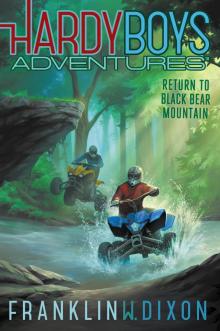 Return to Black Bear Mountain
Return to Black Bear Mountain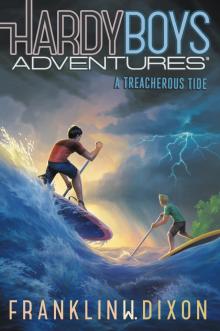 A Treacherous Tide
A Treacherous Tide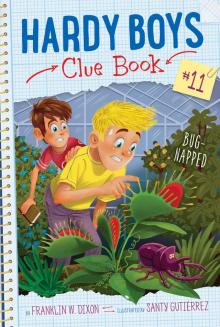 Bug-Napped
Bug-Napped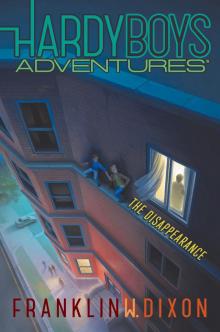 The Disappearance
The Disappearance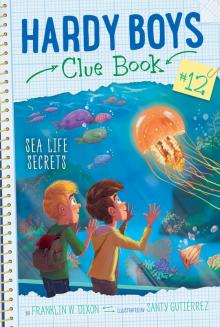 Sea Life Secrets
Sea Life Secrets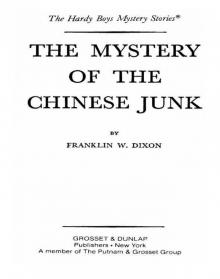 The Mystery of the Chinese Junk
The Mystery of the Chinese Junk A Skateboard Cat-astrophe
A Skateboard Cat-astrophe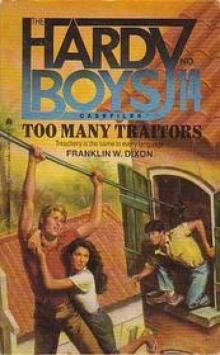 Too Many Traitors
Too Many Traitors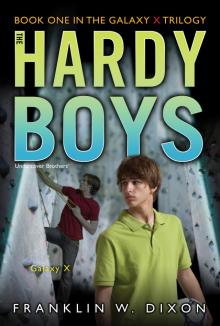 Galaxy X
Galaxy X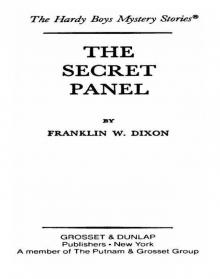 The Secret Panel
The Secret Panel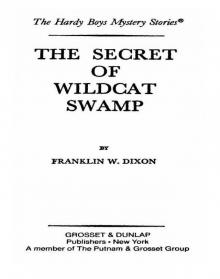 The Secret of Wildcat Swamp
The Secret of Wildcat Swamp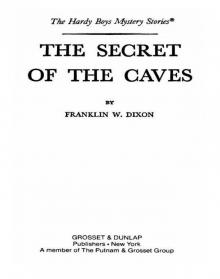 The Secret of the Caves
The Secret of the Caves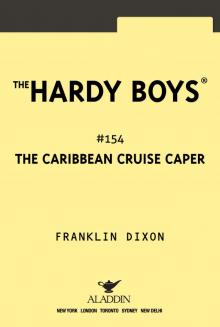 The Caribbean Cruise Caper
The Caribbean Cruise Caper Without a Trace
Without a Trace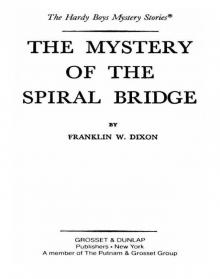 The Mystery of the Spiral Bridge
The Mystery of the Spiral Bridge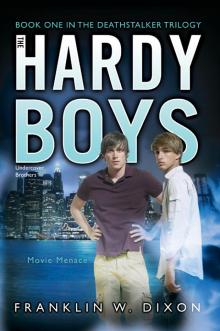 Movie Menace
Movie Menace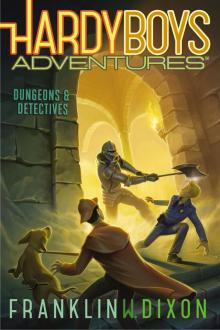 Dungeons & Detectives
Dungeons & Detectives Water-Ski Wipeout
Water-Ski Wipeout The Case of the Psychic's Vision
The Case of the Psychic's Vision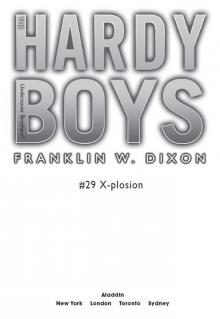 X-plosion
X-plosion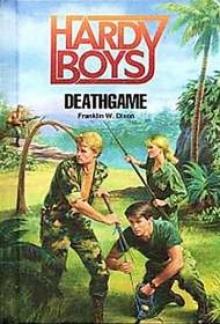 Deathgame
Deathgame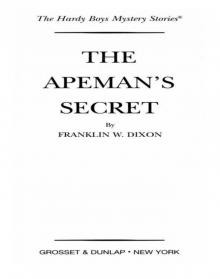 The Apeman's Secret
The Apeman's Secret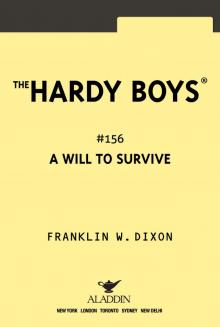 A Will to Survive
A Will to Survive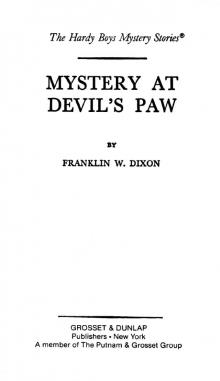 Mystery at Devil's Paw
Mystery at Devil's Paw Blood Money
Blood Money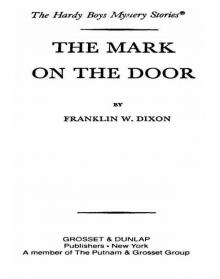 The Mark on the Door
The Mark on the Door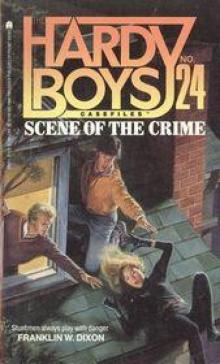 Scene of the Crime
Scene of the Crime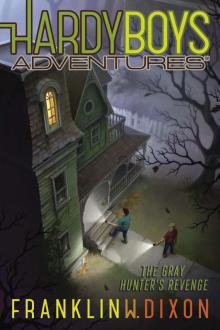 The Gray Hunter's Revenge
The Gray Hunter's Revenge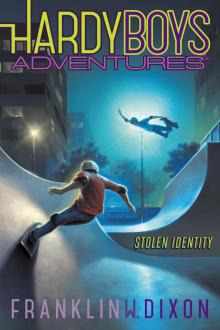 Stolen Identity
Stolen Identity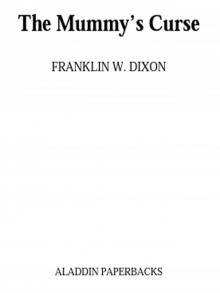 The Mummy's Curse
The Mummy's Curse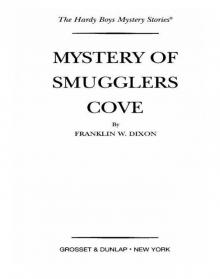 Mystery of Smugglers Cove
Mystery of Smugglers Cove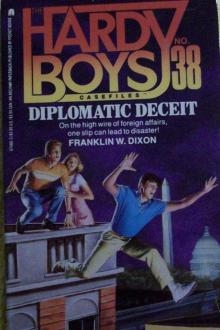 Diplomatic Deceit
Diplomatic Deceit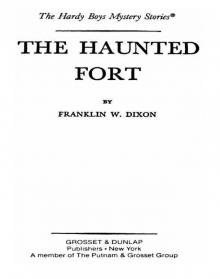 The Haunted Fort
The Haunted Fort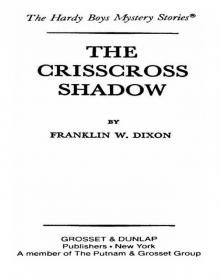 The Crisscross Shadow
The Crisscross Shadow Secret of the Red Arrow
Secret of the Red Arrow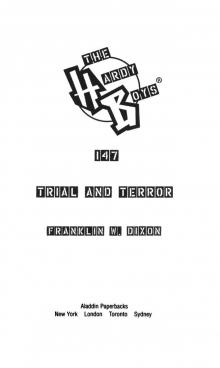 Trial and Terror
Trial and Terror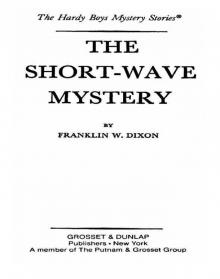 The Short-Wave Mystery
The Short-Wave Mystery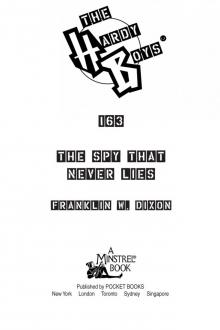 The Spy That Never Lies
The Spy That Never Lies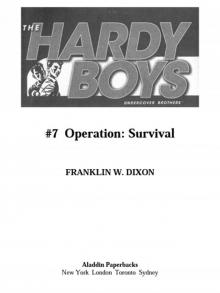 Operation: Survival
Operation: Survival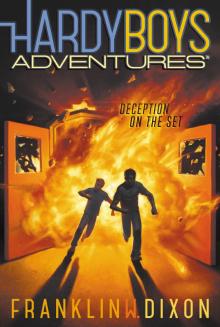 Deception on the Set
Deception on the Set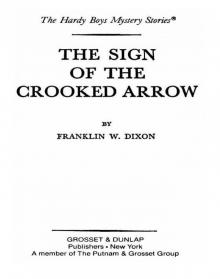 The Sign of the Crooked Arrow
The Sign of the Crooked Arrow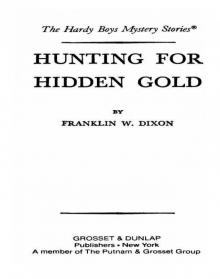 Hunting for Hidden Gold
Hunting for Hidden Gold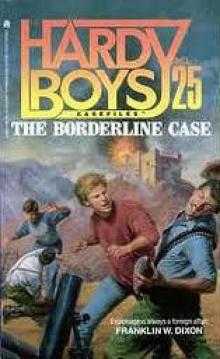 Disaster for Hire
Disaster for Hire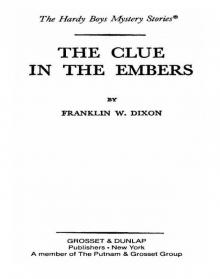 The Clue in the Embers
The Clue in the Embers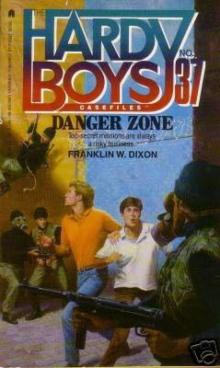 Danger Zone
Danger Zone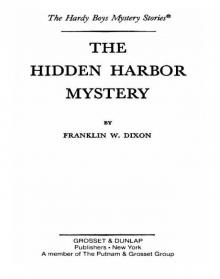 The Hidden Harbor Mystery
The Hidden Harbor Mystery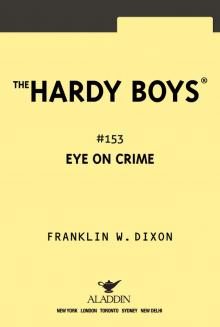 Eye on Crime
Eye on Crime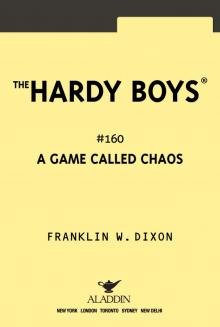 A Game Called Chaos
A Game Called Chaos The Bicycle Thief
The Bicycle Thief The Missing Playbook
The Missing Playbook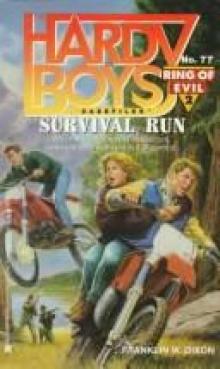 Survival Run
Survival Run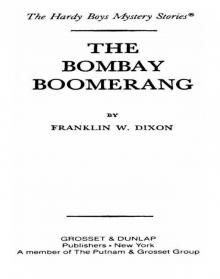 The Bombay Boomerang
The Bombay Boomerang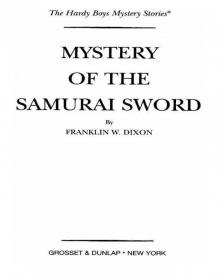 Mystery of the Samurai Sword
Mystery of the Samurai Sword Burned
Burned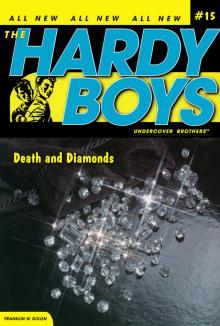 Death and Diamonds
Death and Diamonds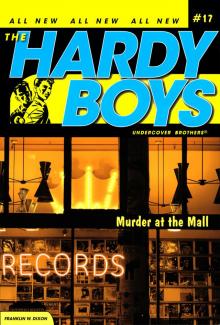 Murder at the Mall
Murder at the Mall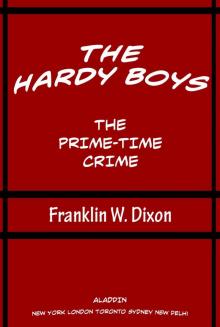 The Prime-Time Crime
The Prime-Time Crime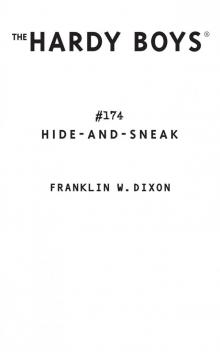 Hide-and-Sneak
Hide-and-Sneak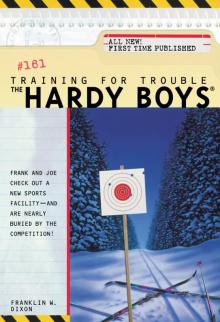 Training for Trouble
Training for Trouble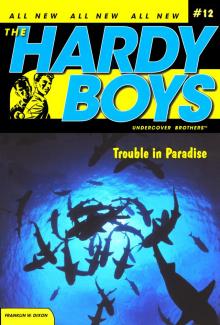 Trouble in Paradise
Trouble in Paradise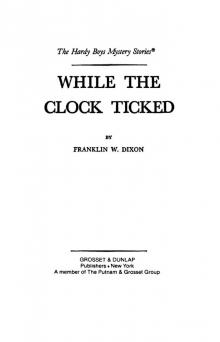 While the Clock Ticked
While the Clock Ticked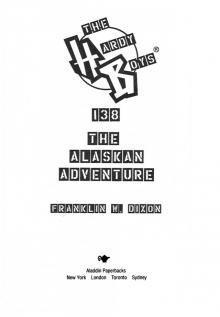 The Alaskan Adventure
The Alaskan Adventure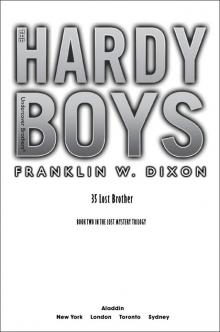 The Lost Brother
The Lost Brother Tunnel of Secrets
Tunnel of Secrets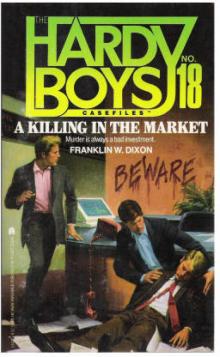 A Killing in the Market
A Killing in the Market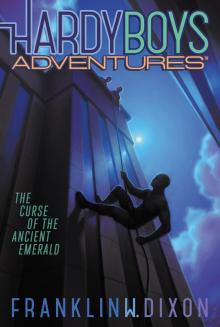 The Curse of the Ancient Emerald
The Curse of the Ancient Emerald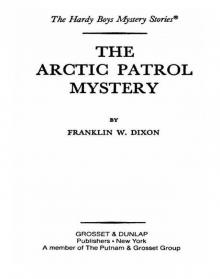 The Arctic Patrol Mystery
The Arctic Patrol Mystery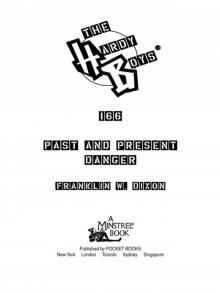 Past and Present Danger
Past and Present Danger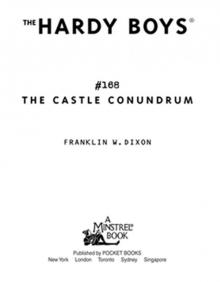 The Castle Conundrum (Hardy Boys)
The Castle Conundrum (Hardy Boys)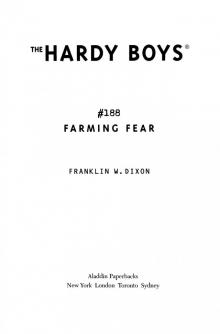 Farming Fear
Farming Fear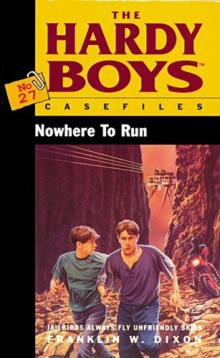 Nowhere to Run
Nowhere to Run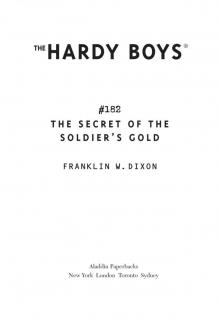 The Secret of the Soldier's Gold
The Secret of the Soldier's Gold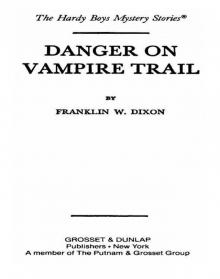 Danger on Vampire Trail
Danger on Vampire Trail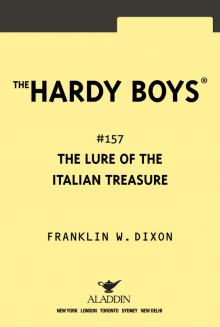 The Lure of the Italian Treasure
The Lure of the Italian Treasure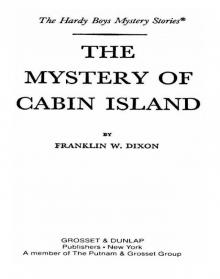 The Mystery of Cabin Island
The Mystery of Cabin Island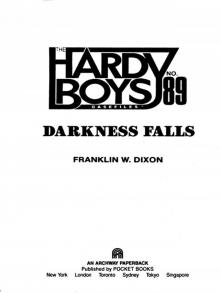 Darkness Falls
Darkness Falls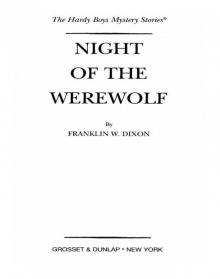 Night of the Werewolf
Night of the Werewolf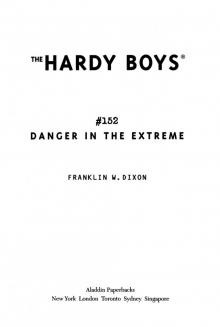 Danger in the Extreme
Danger in the Extreme The Lazarus Plot
The Lazarus Plot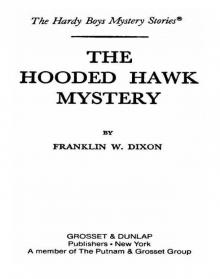 The Hooded Hawk Mystery
The Hooded Hawk Mystery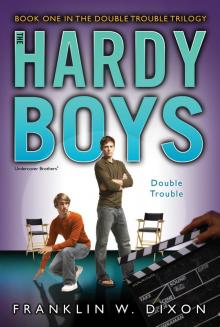 Double Trouble
Double Trouble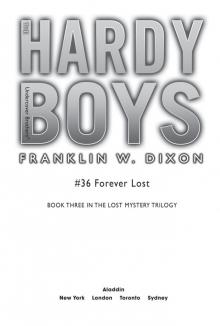 Forever Lost
Forever Lost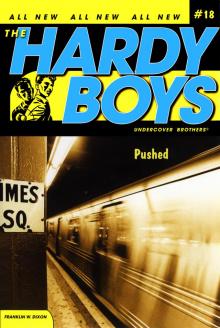 Pushed
Pushed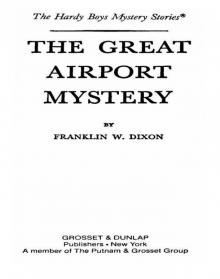 The Great Airport Mystery
The Great Airport Mystery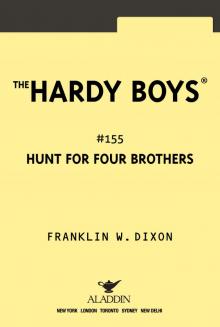 The Hunt for Four Brothers
The Hunt for Four Brothers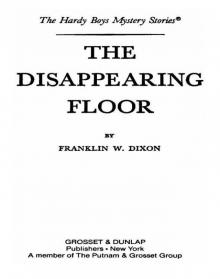 The Disappearing Floor
The Disappearing Floor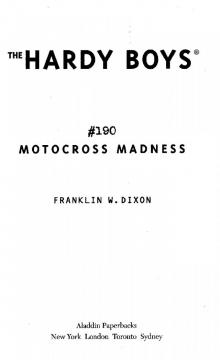 Motocross Madness
Motocross Madness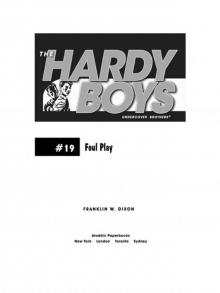 Foul Play
Foul Play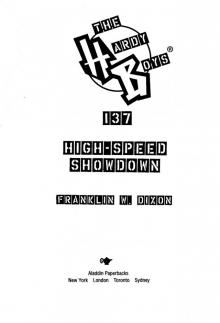 High-Speed Showdown
High-Speed Showdown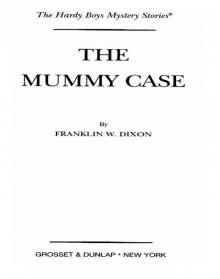 The Mummy Case
The Mummy Case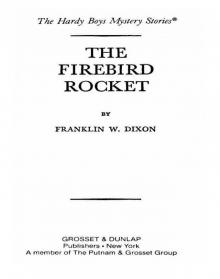 The Firebird Rocket
The Firebird Rocket Trouble in Warp Space
Trouble in Warp Space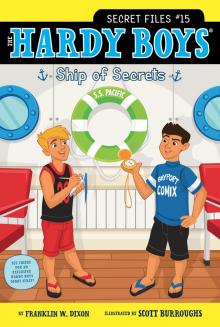 Ship of Secrets
Ship of Secrets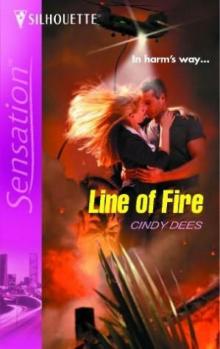 Line of Fire
Line of Fire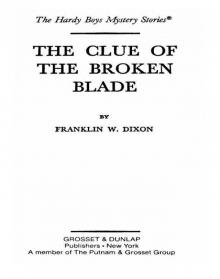 The Clue of the Broken Blade
The Clue of the Broken Blade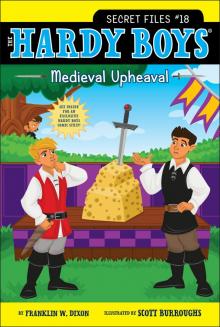 Medieval Upheaval
Medieval Upheaval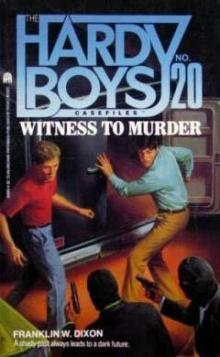 Witness to Murder
Witness to Murder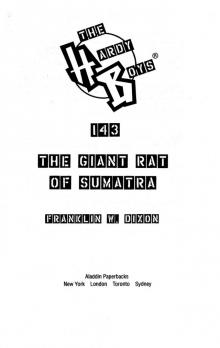 The Giant Rat of Sumatra
The Giant Rat of Sumatra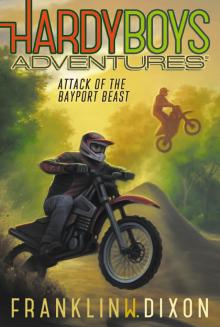 Attack of the Bayport Beast
Attack of the Bayport Beast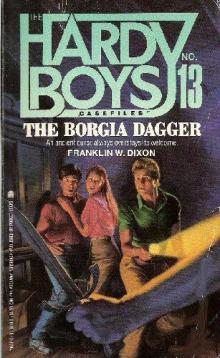 The Borgia Dagger
The Borgia Dagger Scavenger Hunt Heist
Scavenger Hunt Heist No Way Out
No Way Out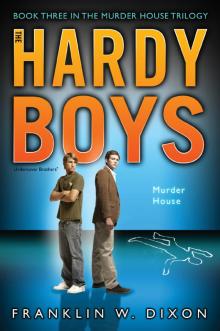 Murder House
Murder House The X-Factor
The X-Factor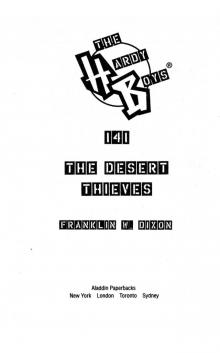 The Desert Thieves
The Desert Thieves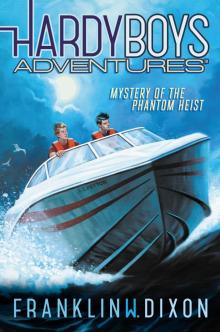 Mystery of the Phantom Heist
Mystery of the Phantom Heist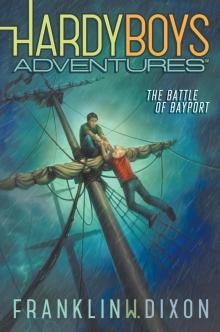 The Battle of Bayport
The Battle of Bayport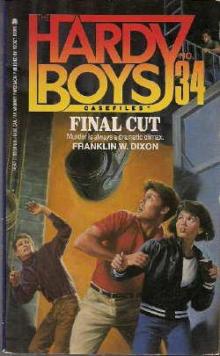 Final Cut
Final Cut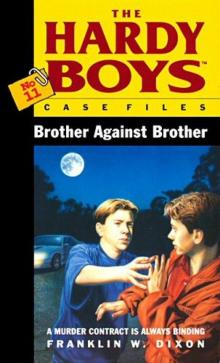 Brother Against Brother
Brother Against Brother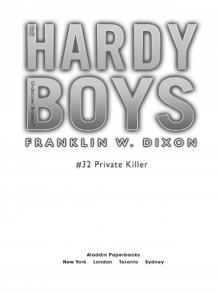 Private Killer
Private Killer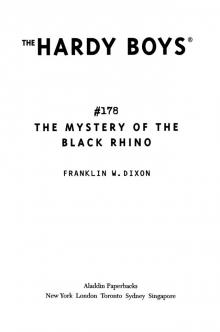 The Mystery of the Black Rhino
The Mystery of the Black Rhino Feeding Frenzy
Feeding Frenzy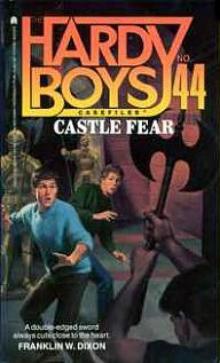 Castle Fear
Castle Fear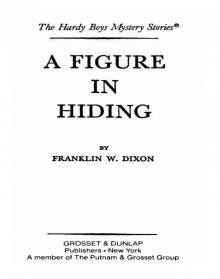 A Figure in Hiding
A Figure in Hiding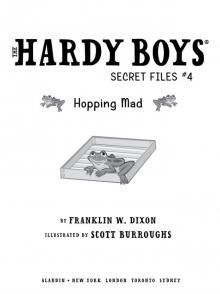 Hopping Mad
Hopping Mad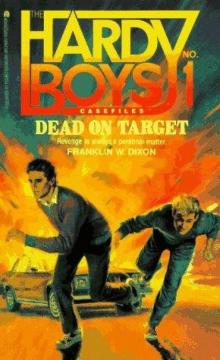 Dead on Target
Dead on Target Skin and Bones
Skin and Bones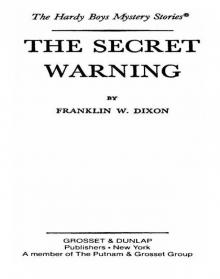 The Secret Warning
The Secret Warning Flesh and Blood
Flesh and Blood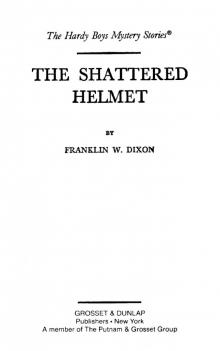 The Shattered Helmet
The Shattered Helmet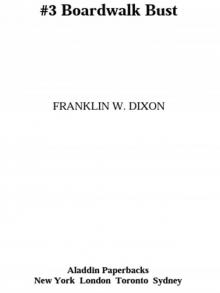 Boardwalk Bust
Boardwalk Bust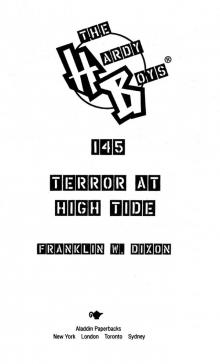 Terror at High Tide
Terror at High Tide In Plane Sight
In Plane Sight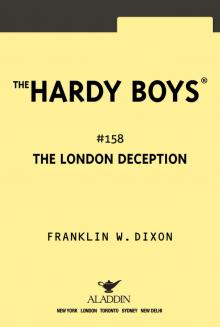 The London Deception
The London Deception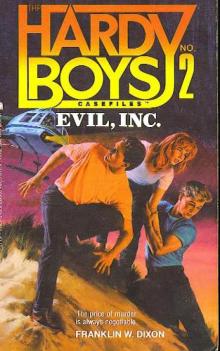 Evil, Inc.
Evil, Inc.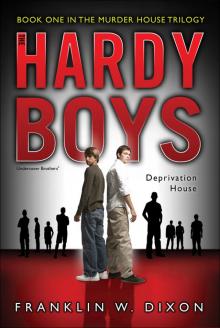 Deprivation House
Deprivation House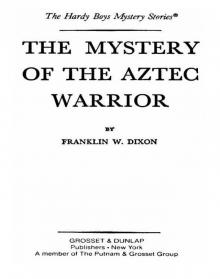 The Mystery of the Aztec Warrior
The Mystery of the Aztec Warrior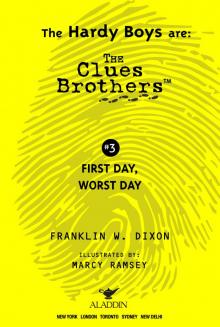 First Day, Worst Day
First Day, Worst Day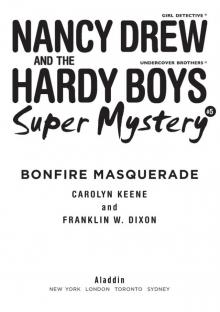 Bonfire Masquerade
Bonfire Masquerade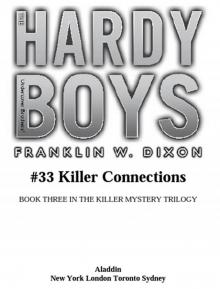 Killer Connections
Killer Connections Strategic Moves
Strategic Moves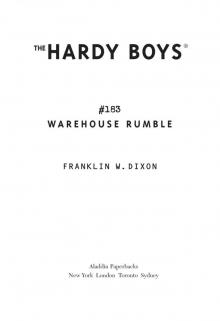 Warehouse Rumble
Warehouse Rumble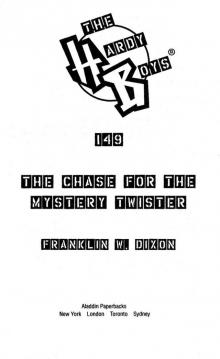 The Chase for the Mystery Twister
The Chase for the Mystery Twister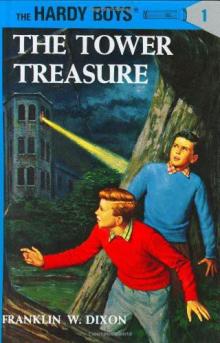 The Tower Treasure thb-1
The Tower Treasure thb-1 The Children of the Lost
The Children of the Lost The Last Laugh
The Last Laugh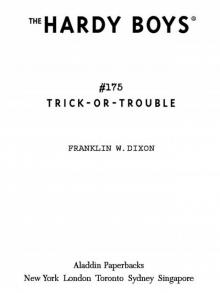 Trick-or-Trouble
Trick-or-Trouble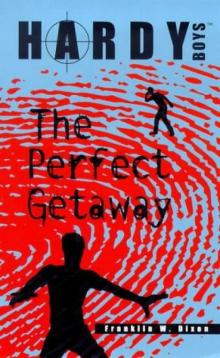 Perfect Getaway
Perfect Getaway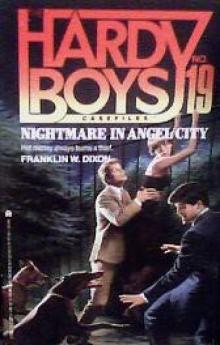 Nightmare in Angel City
Nightmare in Angel City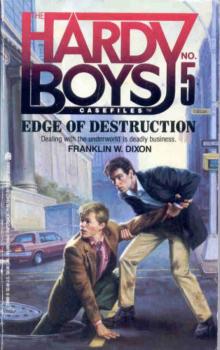 Edge of Destruction
Edge of Destruction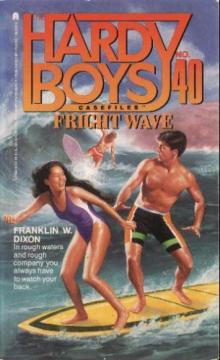 Fright Wave
Fright Wave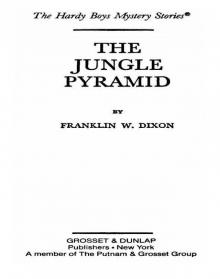 The Jungle Pyramid
The Jungle Pyramid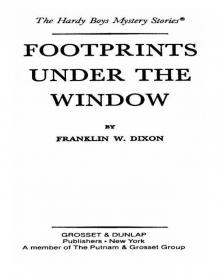 Footprints Under the Window
Footprints Under the Window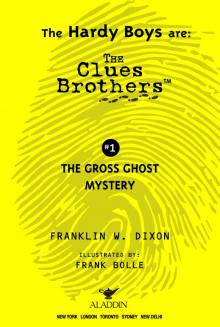 The Gross Ghost Mystery
The Gross Ghost Mystery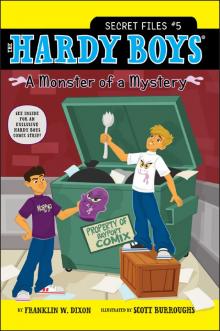 A Monster of a Mystery
A Monster of a Mystery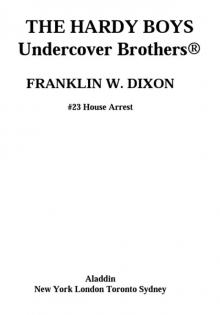 House Arrest
House Arrest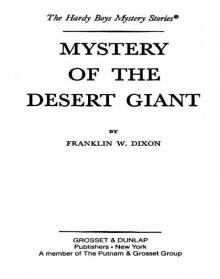 Mystery of the Desert Giant
Mystery of the Desert Giant Talent Show Tricks
Talent Show Tricks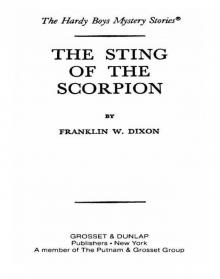 The Sting of the Scorpion
The Sting of the Scorpion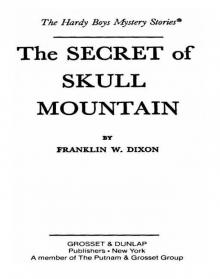 The Secret of Skull Mountain
The Secret of Skull Mountain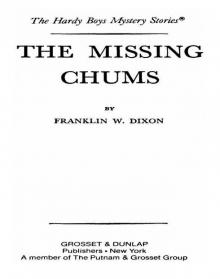 The Missing Chums
The Missing Chums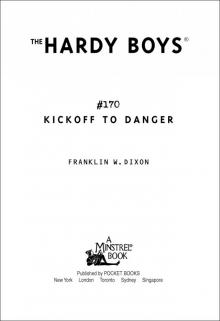 Kickoff to Danger
Kickoff to Danger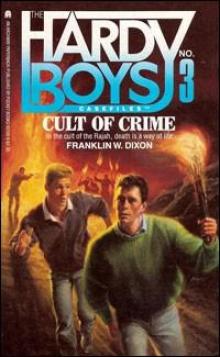 Cult of Crime
Cult of Crime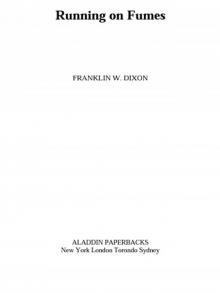 Running on Fumes
Running on Fumes Martial Law
Martial Law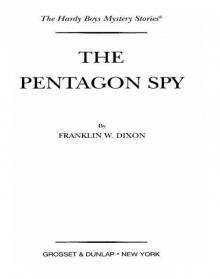 The Pentagon Spy
The Pentagon Spy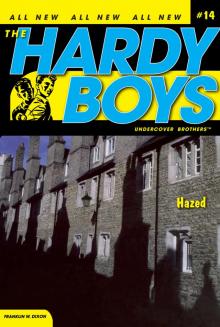 Hazed
Hazed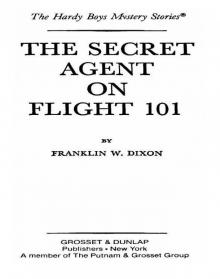 The Secret Agent on Flight 101
The Secret Agent on Flight 101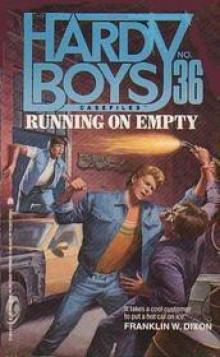 Running on Empty
Running on Empty Top Ten Ways to Die
Top Ten Ways to Die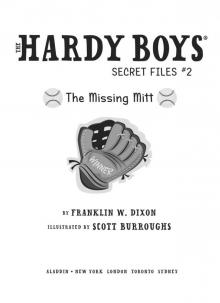 The Missing Mitt
The Missing Mitt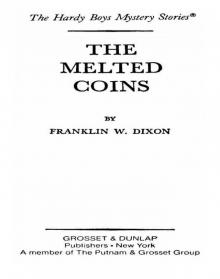 The Melted Coins
The Melted Coins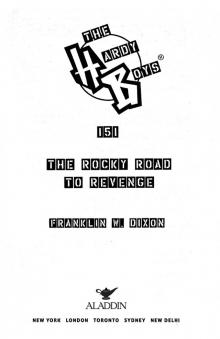 The Rocky Road to Revenge
The Rocky Road to Revenge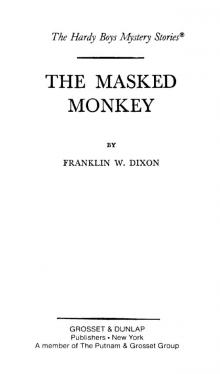 The Masked Monkey
The Masked Monkey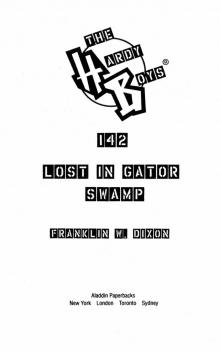 Lost in Gator Swamp
Lost in Gator Swamp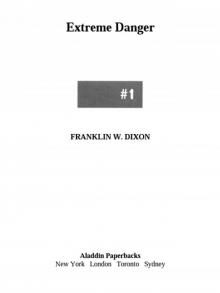 Extreme Danger
Extreme Danger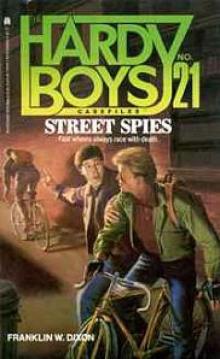 Street Spies
Street Spies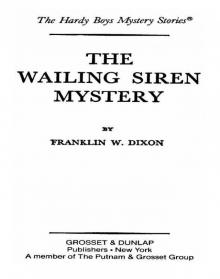 The Wailing Siren Mystery
The Wailing Siren Mystery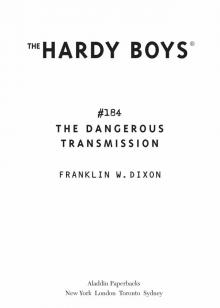 The Dangerous Transmission
The Dangerous Transmission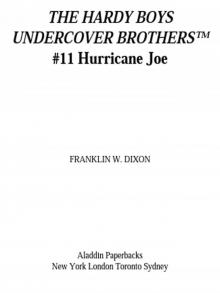 Hurricane Joe
Hurricane Joe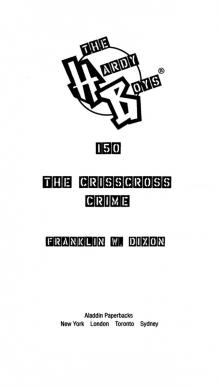 The Crisscross Crime
The Crisscross Crime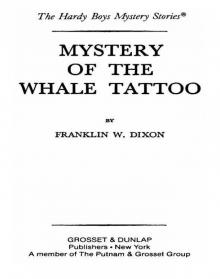 Mystery of the Whale Tattoo
Mystery of the Whale Tattoo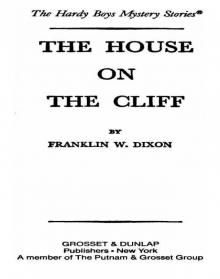 The House on the Cliff
The House on the Cliff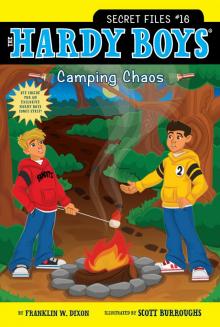 Camping Chaos
Camping Chaos Ghost of a Chance
Ghost of a Chance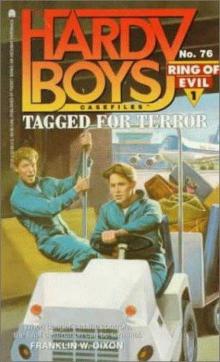 Tagged for Terror
Tagged for Terror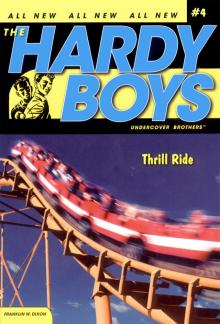 Thrill Ride
Thrill Ride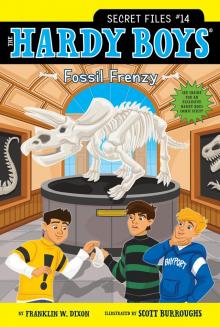 Fossil Frenzy
Fossil Frenzy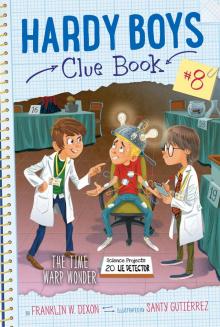 The Time Warp Wonder
The Time Warp Wonder Ghost Stories
Ghost Stories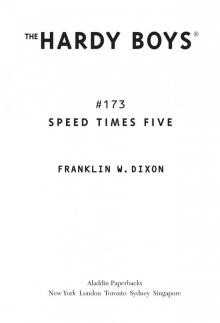 Speed Times Five
Speed Times Five What Happened at Midnight
What Happened at Midnight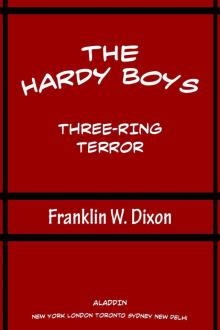 Three-Ring Terror
Three-Ring Terror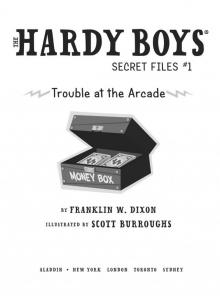 Trouble at the Arcade
Trouble at the Arcade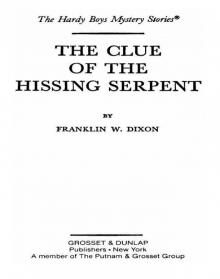 The Clue of the Hissing Serpent
The Clue of the Hissing Serpent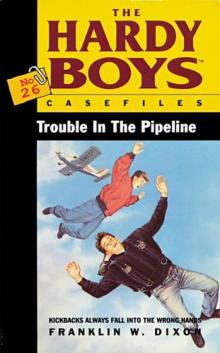 Trouble in the Pipeline
Trouble in the Pipeline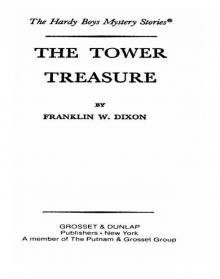 The Tower Treasure
The Tower Treasure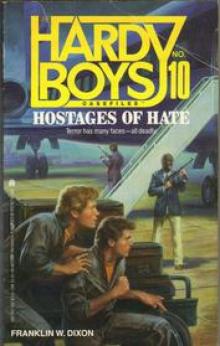 Hostages of Hate
Hostages of Hate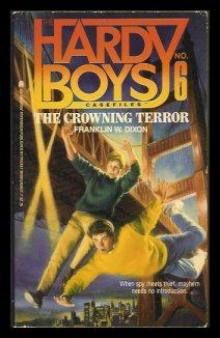 The Crowning Terror
The Crowning Terror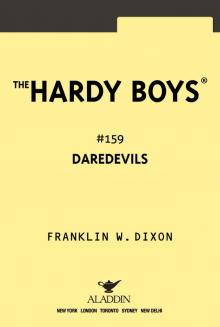 Daredevils
Daredevils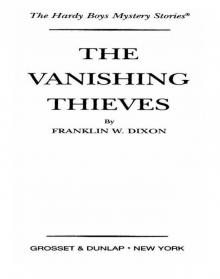 The Vanishing Thieves
The Vanishing Thieves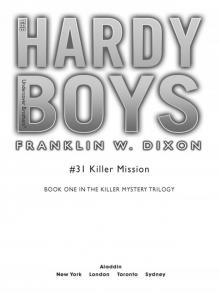 Killer Mission
Killer Mission The Mark of the Blue Tattoo
The Mark of the Blue Tattoo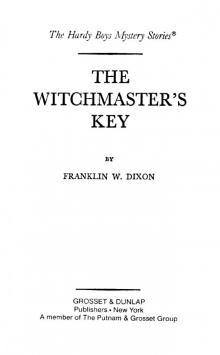 The Witchmaster's Key
The Witchmaster's Key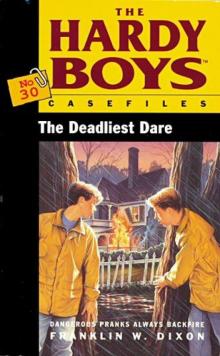 The Deadliest Dare
The Deadliest Dare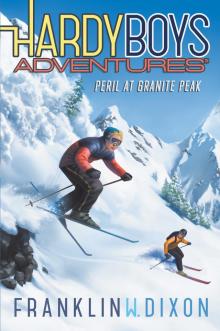 Peril at Granite Peak
Peril at Granite Peak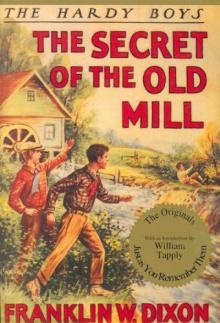 The Secret Of The Old Mill thb-3
The Secret Of The Old Mill thb-3 Rocky Road
Rocky Road The Demolition Mission
The Demolition Mission Blown Away
Blown Away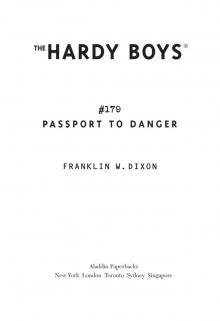 Passport to Danger
Passport to Danger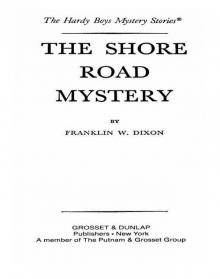 The Shore Road Mystery
The Shore Road Mystery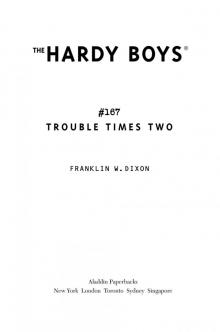 Trouble Times Two
Trouble Times Two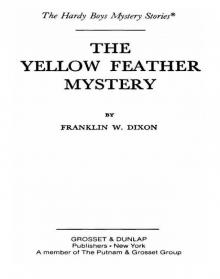 The Yellow Feather Mystery
The Yellow Feather Mystery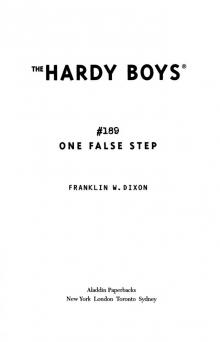 One False Step
One False Step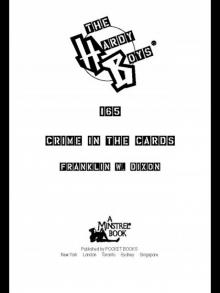 Crime in the Cards
Crime in the Cards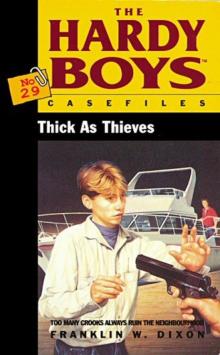 Thick as Thieves
Thick as Thieves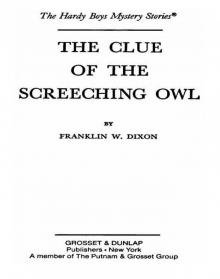 The Clue of the Screeching Owl
The Clue of the Screeching Owl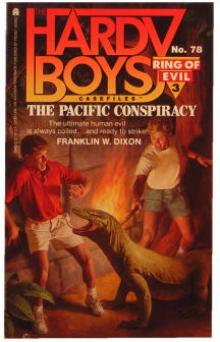 The Pacific Conspiracy
The Pacific Conspiracy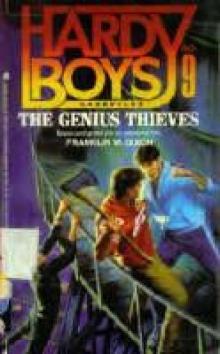 The Genius Thieves
The Genius Thieves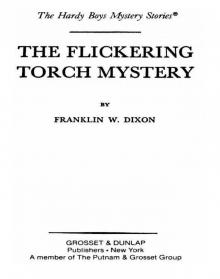 The Flickering Torch Mystery
The Flickering Torch Mystery Into Thin Air
Into Thin Air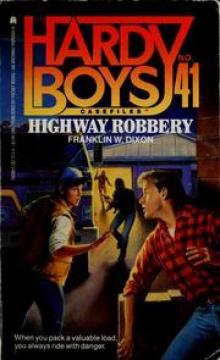 Highway Robbery
Highway Robbery Deadfall
Deadfall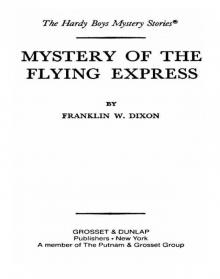 Mystery of the Flying Express
Mystery of the Flying Express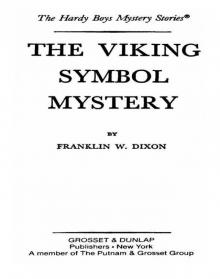 The Viking Symbol Mystery
The Viking Symbol Mystery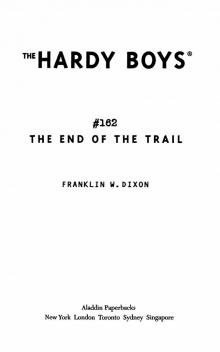 The End of the Trail
The End of the Trail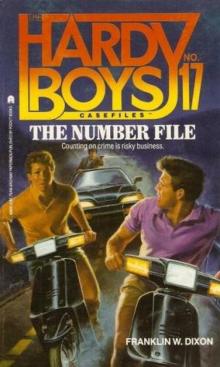 The Number File
The Number File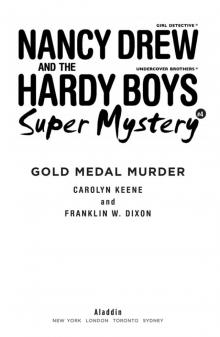 Gold Medal Murder
Gold Medal Murder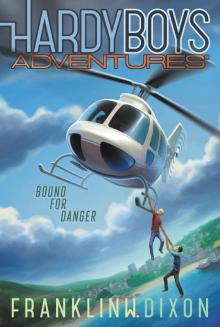 Bound for Danger
Bound for Danger Collision Course
Collision Course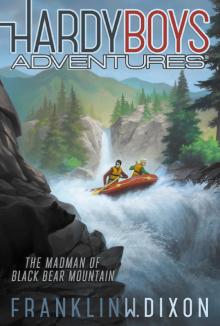 The Madman of Black Bear Mountain
The Madman of Black Bear Mountain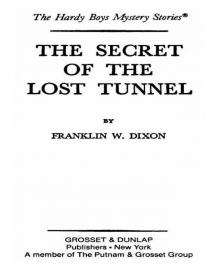 The Secret of the Lost Tunnel
The Secret of the Lost Tunnel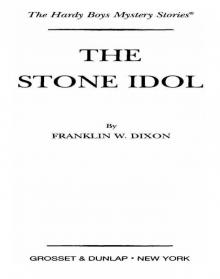 The Stone Idol
The Stone Idol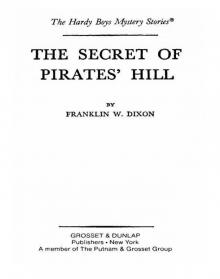 The Secret of Pirates' Hill
The Secret of Pirates' Hill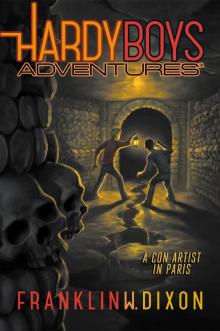 A Con Artist in Paris
A Con Artist in Paris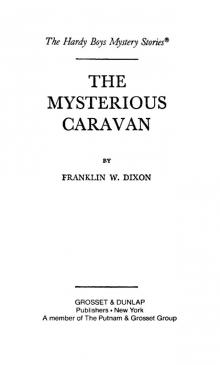 The Mysterious Caravan
The Mysterious Caravan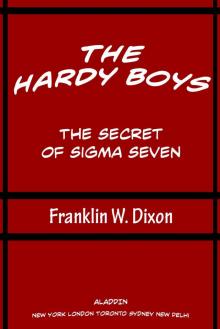 The Secret of Sigma Seven
The Secret of Sigma Seven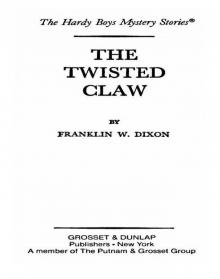 The Twisted Claw
The Twisted Claw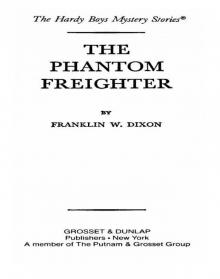 The Phantom Freighter
The Phantom Freighter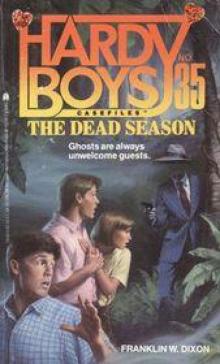 The Dead Season
The Dead Season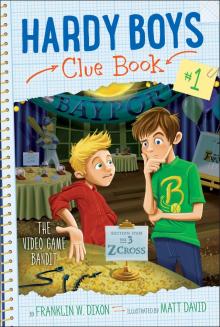 The Video Game Bandit
The Video Game Bandit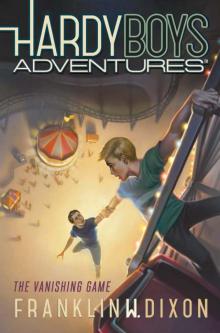 The Vanishing Game
The Vanishing Game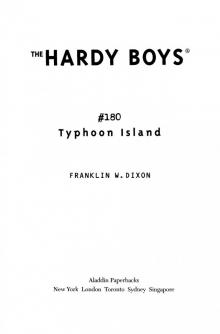 Typhoon Island
Typhoon Island